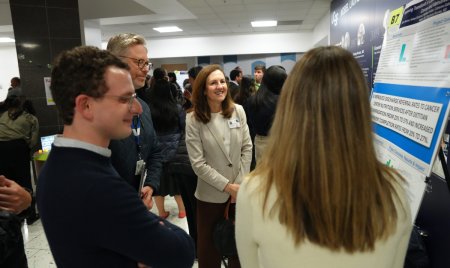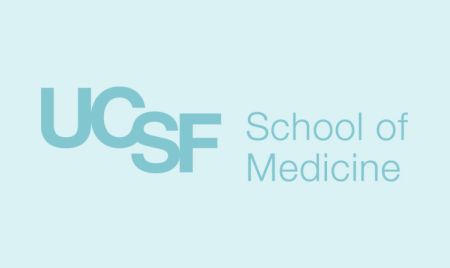Q&A: Fourth Year Medical Student Wins Physician-Scientist Award

Alexander Craig, fourth year student at the UCSF School of Medicine
UCSF School of Medicine student, Alexander Craig, has been selected by the American Society of Hematology (ASH) as one of five medical students to receive the 2019-2020 ASH Physician-Scientist Career Development Award. This award allows students to gain research experience in hematology under the mentorship of an ASH member. Through June 30, 2020, Craig will be immersed in hematology, spending more than 80 percent of his time conducting research. He has received a total award amount of $42,000, to help cover supplies, insurance, educational expenses, salary, and meeting attendance. Below is a Q&A with Craig about his path to medicine, his experiences in medical school so far, and his hopes for the future.
Q: What research are you conducting related to this award?
My main project focuses on applying new deep-sequencing techniques to improve early detection and sensitive monitoring in rare types of lymphoma. I work with circulating tumor DNA, a novel biomarker which allows non-invasive tumor profiling from simple blood draws – often called a “liquid biopsy”. By mapping the evolution of these rare tumors over time from DNA fragments in the blood, I aim to identify the genetic changes that make these tumors resistant to treatment. This project may help explain why these types of lymphomas are usually incurable. A long-term goal is to identify new molecular targets that could drive the development of more effective therapies in the future.
Q: You have an interesting academic background. What led you to medical school?
My academic background is in Classics and the Philosophy of Science. It seems like a big change from Classics to Medicine, but it was a natural transition for me. These humanistic fields taught me timeless stories to better understand and empathize with people. I studied the history and philosophy of medicine in the ancient world – Hippocrates, ancient philosophers, engineers and mathematicians. It was a privilege and a luxury to study this, but eventually I realized I wanted to work more closely with people and have a more applied, service-oriented career. During my post-bac program I spent some time in the operating room and in a lab, and I gradually realized medicine was the right choice for me.
Q: Why did you select UCSF for medical school?
Geography was a major factor for me - I am originally from the Bay Area, but lived away from here for several years and wanted to come home. UCSF’s commitment to service and its values were very appealing to me and resonated with what I hoped to get out of my medical education. I also thought it would be more challenging for me personally to practice in a city, and I’ve never lived in an urban environment before.
Q: How has the medical school experience been for you so far?
It’s been challenging in all of the right ways. I’ve been exposed to a lot of people I never met before—the patients in San Francisco face countless struggles and challenges. I feel like my understanding of the world and my place in the world has been broadened. Medical school has brought a lot of new growth into my life, and the third year was definitely the most transformational. I liked being out of the classroom and practicing with patients. The start of that year was very challenging and humbling, with a steep learning curve, but it’s astounding how much students adapt and learn over the year. Eventually, I started thinking of myself as a provider.
Q: Have you decided what you will specialize in?
I haven’t decided what I’m going to specialize in, but in one way or another I think my career will focus on cancer. I think it’s the hardest scientific problem in medicine, and in some ways it’s the hardest clinical problem as well. We have to learn to diagnose it more effectively. Everyone’s lives have been touched by cancer somehow – it’s something we can all relate to. I think it’s a problem I’ll be working on throughout my career, directly with patients or in a more behind-the-scenes role.
Q: How did it feel when you found out you received the ASH Award?
My mentor and PI at Stanford, Dr. Ash Alizadeh, recommended this award. We had to put together an in-depth project proposal that was both novel and realistic with respect to time and my skillsets. I feel very grateful for this award and for the mentors I have had along the way who have made all the difference in finding a path to medicine. I hope to pass the torch and mentor and support others in the future who want to pursue medical research or join the field of medicine from non-traditional backgrounds.
Find research grants, scholarships: Inquiry Office Funding Database









